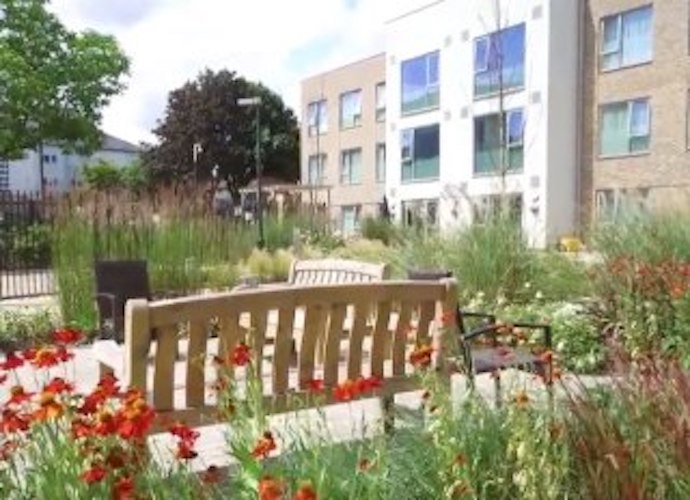It is a week since Greenwich leader Dan Thorpe launched an urgent appeal for donations of personal protective equipment (PPE) for social care staff in his borough when expected supplies did not arrive. Over the following few days, some boroughs received some of what they need from the government, but by the weekend Thorpe was all over the media pleading for much, much more.
Other councillors took up the cry. Ealing leader Julian Bell said “were are really struggling in our 50+ care homes“, saying 10 of them were already dealing with Covid-19 outbreaks and that there had already been “some deaths”. A councillor in Bexley said they were having the same issue: “Unable to discharge patients from hospital and risk to staff”. It had already been reported that seven cases had been identified among patients and staff at a care home in Southwark.
Now, as another weekend nears, councils in London are starting to despair of ever getting the PPE their care home workers need in order to do their job of looking after some of the capital’s most fragile people, including staying free of the virus themselves. Gareth Roberts, leader of Richmond, said today, “The big issue we have is, in common with every borough, the lack of PPE. We got a delivery last Friday, from the army, and whilst it was very welcome it was very small. It took less than five minutes to unload from the lorry.” There were masks and aprons, about 5,000 of each, but, Roberts says, they are “single use only so they will soon run out”.
The gear is needed by a variety of different kinds of workers in Richmond. Roberts says it has been shared out with several partner organisations, including the police, but in the forefront of his mind are the “two or three coronavirus cases” confirmed in Richmond’s care homes. These have had to go into any even tighter lockdown then before because “even if they have spare capacity and beds, we can’t put somebody into a care situation where we know there is an existing case of coronavirus and, frankly, inadequate supplies of PPE to make sure that everybody is kept safe”.
In the north of the city, Enfield leader Nesil Caliskan is in a similar state of despair. “Without a doubt the number one issue continues to be PPE,” she says. “We’re getting some, but nowhere near enough. Last Friday, after many days of waiting we received 6,000 masks. I understand that they were surgical masks and they last for about 15 minutes. We have 150 care homes in Enfield.”
Caliskan says she recognises that NHS staff need PPE too, but cannot understand why care workers aren’t being seen as just as vital. This kind of work, with elderly people, some of whom are already ill or suffering with dementia, often requires close physical contact. If the virus is inadvertently transmitted by a care worker to these members of the highest risk Covid-19 groups, there is a high chance that it will kill them. And if staff themselves contract the virus or need to self-isolate because a household member has, the quality of care suffers as staffing levels are hit. And the more pressure on staff, the more likely it is that those they care for have to be admitted to hospital, putting yet more strain on the NHS. “There were already staff shortages,” Caliskan says. “The adult social care sector was already at crisis point.”
She adds that she’s having doubts about government promises. “You hear ministers saying this is high priority, but what is then being delivered is very different. There may be an issue with supply, but that’s not what they are saying to us. Ministers are saying we’ve got plenty of PPE equipment, it’s just about distribution. I am beginning to not trust that statement. Because if that is the case, where is it?”
Croydon is another borough with a high number of care homes – over 140 of various kinds, with about 3,500 residents. There are credible reports of cases of the virus in at least one of them. Councillors were alive from early last month to reports that it had been spreading through care communities in Italy and Seattle before this was widely diagnosed and with devastating effects. But without the PPE they need – along with far more extensive testing – the ability of anyone to slow it is limited. Councillor Sean Fitzsimons, who chairs both the scrutiny committee and and the social care sub committee, describes the situation as “a ticking time bomb”.
A January 2019 London Councils report warned that “in some areas the care market has become very fragile”, with a small fall in the number of nursing homes beds having taken place and “an increased dependency on informal carers”. Figures showed that in 2017 there were around 4,200 organisations involved in providing or organising care in the capital, of which one third provide residential services of some kind – either residential or nursing care, for those least able to look after themselves
A report published last year by London Councils said there are well over 4,000 organisations across London involved in “providing or organising care”, of which a third provide residential services. “The consequence of underfunding the sector has meant that in some areas the care market has become very fragile,” it said. Now, the fear is that all across the city, painfully vulnerable elderly people, already unable to be visited by relatives, could soon die very alone.
OnLondon.co.uk is doing all it can to keep providing the best possible coverage of important London issues during the coronavirus crisis. It now depends more than ever on donations from readers. Individual sums or regular monthly contributions are very welcome indeed. Click here to donate via Donorbox or contact davehillonlondon@gmail.com. Thank you.

